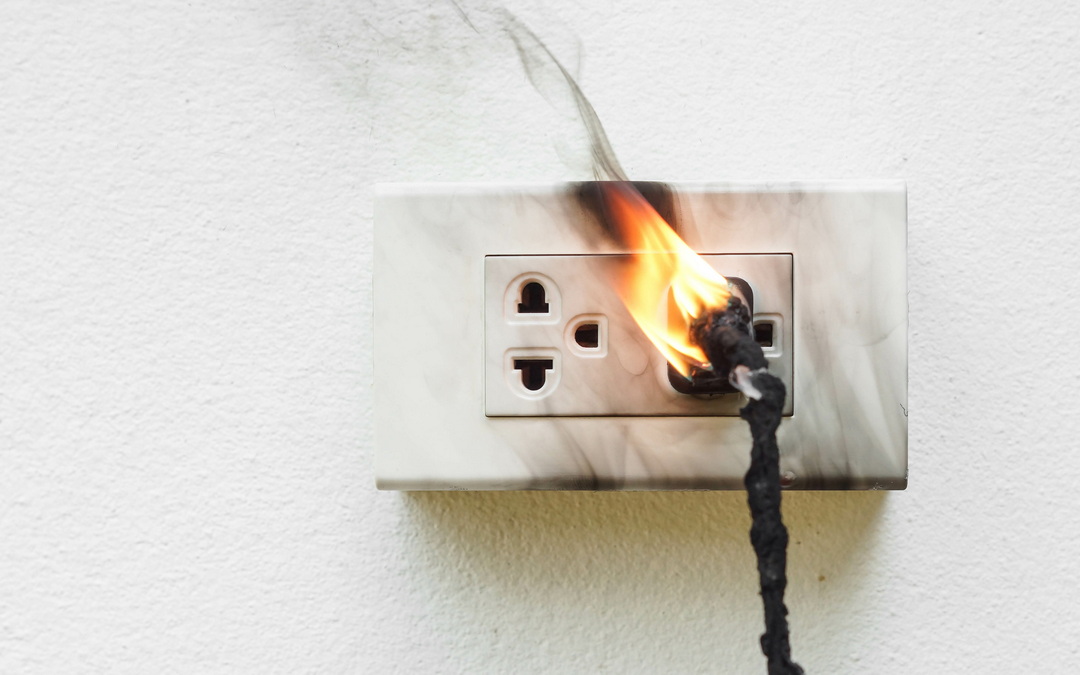Every May, we recognize National Electric Safety Month, a time to raise awareness about the importance of electrical safety in our homes. Electricity powers our lives, but it also poses significant risks if not handled properly. To ensure the safety of you and your loved ones, here are some essential tips to keep in mind:
Inspect Regularly: Conduct routine inspections of your electrical systems, including outlets, switches, and cords. Look for signs of wear and tear such as frayed wires, loose connections, or overheating. Address any issues promptly to prevent potential hazards.
- Plug Safety: Avoid overloading outlets by using power strips with built-in surge protection. Never plug multiple high-wattage appliances into the same outlet, as this can lead to overheating and fires. Ensure that all plugs fit snugly into outlets to prevent sparks or shocks.
- Water and Electricity Don’t Mix: Keep electrical appliances away from water sources such as sinks, tubs, and pools. Install ground fault circuit interrupters (GFCIs) in areas where water and electricity are in close proximity, such as kitchens, bathrooms, and outdoor spaces.
- Childproof Your Outlets: Use outlet covers or tamper-resistant receptacles to prevent young children from inserting objects into electrical outlets. Educate children about the dangers of playing with electrical appliances and cords to minimize the risk of accidents.
- Stay Grounded: Ensure that your home’s electrical system is properly grounded to redirect excess electricity safely into the ground. Grounding helps protect against electrical shocks and reduces the risk of electrical fires.
- Unplug When Not in Use: When appliances are not in use, unplug them to prevent energy waste and reduce the risk of electrical malfunctions. This simple habit can also lower your energy bills and extend the lifespan of your electrical devices.
- Professional Assistance: For complex electrical tasks such as wiring installations or repairs, seek the expertise of a qualified electrician. DIY electrical work can be dangerous and may lead to serious accidents or code violations.
- Emergency Preparedness: Have a plan in place for handling electrical emergencies, such as power outages or electrical fires. Keep emergency contact numbers readily available and invest in smoke detectors and fire extinguishers for added safety.
By following these tips and remaining vigilant about electrical safety, you can create a secure environment for you and your family. Let’s celebrate National Electric Safety Month by prioritizing safety and reducing the risks associated with electrical hazards. Remember, a little precaution today can prevent a major shock tomorrow!

